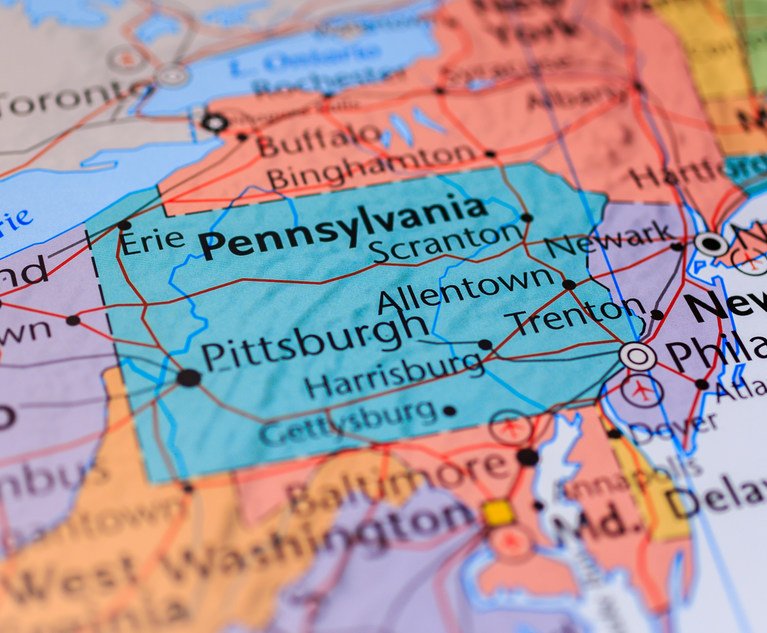
Florida
SB 7052 was introduced as a late-filed bill during the 2023 Florida regular legislative session, and it contained multiple provisions that were harmful to the surplus lines industry. WSIA was very concerned about some of these provisions. SB 7052 was amended based upon the House version, HB 7065, and ultimately passed without any of the harmful provisions to the surplus lines industry. WSIA worked with the Florida Surplus Lines Association (FSLA) to oppose the relevant provisions of the Senate bill which was approved by the Governor and took effect on July 1, 2023.
HB 837 is a comprehensive tort reform bill that limits the applicability of one-way attorney’s fees in several ways but, most notably, one-way fees awarded in judgments against surplus lines insurers. The bill also includes several other tort reform provisions. “This bill was signed into law on March 24 and became effective immediately,” Kish said. “This legislation was very much welcomed by the market and we believe we will begin to see a positive impact from the changes soon.”
Credit: Raul Rodriguez/Adobe Stock

Maine
A statutory change made by LD 1917 in 2022 resurrected a long-dormant statute requiring a retaliatory tax on surplus lines business. 36 MRSA 2519 requires the state to collect a retaliatory tax when the writing carrier is located in a state with a higher tax rate than the Maine rate of 3%. WSIA retained legislative counsel in Maine and worked with local partners to introduce LD 1979 which would repeal the retaliatory tax provision. The bill was signed into law and has a retroactive effective date of January 1, 2023, so brokers will not have to remit taxes based upon the retaliatory provision.
In addition, LD 1808, amends existing statute to allow surplus lines producers to elect to determine the tax payment for each estimated tax period on the basis of premiums written during each tax period of the current calendar year instead of the traditional taxation payment method, which is based on the previous year’s tax burden. WSIA supports this measure and believes it will further simplify the Maine tax payment process going forward. The bill is still pending in the Maine legislature.
Credit: SeanPavonePhoto/Adobe Stock

Nevada
For Nevada’s Defense With Limits Law, WSIA was pleased with Commissioner Kipper’s recent issuance of an emergency regulation addressing the underlying legislation.
“As part of his guidance, his office indicated that that the law is limited to liability policies issued by authorized insurers, thus the prohibition does not apply to defense within limits in nonadmitted contracts,” Kish said. “WSIA strongly advocated to the Commissioner and his staff that the legal and regulatory precedent precluded application to the nonadmitted market and we are very happy that he had the same conclusion. We expect that when the legislature adjourns again in 2025, the underlying statute will be revisited.”
Credit: f11photo/Shutterstock.com

Pennsylvania
The Pennsylvania Surplus Lines Association issued a Bulletin on July 25, 2022 indicating that personal lines policies fees charged in addition to a commission are prohibited according to the Pennsylvania Department of Insurance. Based on members’ concerns, WSIA hired a lobbyist to seek a legislative change that will clarify that policy fees are permitted on personal surplus lines policies, just as they are allowed for commercial policies, and is working towards a legislative solution in 2023.
Credit: Alexander Lukatskiy/Shutterstock.com

Texas
SB 796 would have required arbitration provisions in surplus lines contracts to be conducted in Texas, thus prohibiting out-of-state arbitration provisions. Ultimately, the bill passed both the House and the Senate but was vetoed by the Governor after a broad coalition urged the veto. WSIA submitted a letter in support of veto.
Credit: Stephen Finn/Adobe Stock
Each year, the Legislative Committee at the Wholesale & Specialty Insurance Association (WSIA) dedicates itself to promoting the legislative and regulatory interests of WSIA members and the wholesale, specialty and surplus lines industry — from private flood insurance to the SAFE Banking Act to state-specific issues.
Private flood insurance
The National Flood Insurance Program (NFIP) is facing reforms and a long-term reauthorization. The NFIP is an essential component to flood hazard protection and mitigation for U.S. personal and commercial policy consumers.
“We support the NFIP and advocate for a long-term reauthorization and reforms that will enhance its partnership with the private market,” says Keri Kish, general counsel and policy director at WSIA. “Since September 2017, the NFIP has been extended 25 times without reform or long-term reauthorization. Our biggest concern for the NFIP would be a lapse of the program if Congress cannot agree on terms of a reauthorization or if the program is caught up in a potential government shutdown.”
Cannabis concerns
The SAFE Banking Act also is top-of-mind for WSIA members who are currently writing/placing cannabis risks or want to but cannot because of underlying laws.
As Kish explained, presently, there are a significant number of states that have legalized cannabis for medical and/or recreational use. In these states the businesses that support the cannabis industry is legal, so they, just like all businesses, need financial services like insurance.
“Although the business are legal in the states, in the federal government’s eyes the proceeds from those businesses are still proceeds from scheduled drugs since marijuana remains on the federal drug schedule and therefore the federal banking system cannot accept the proceeds,” Kish said. “Accepting premiums from the businesses and depositing them through the federal banking system is therefore problematic.”
The SAFE Banking Act would provide a “safe harbor” for the financial services industry when it is providing services to valid businesses in states where cannabis businesses are legal.
“With the cannabis industry continuing to grow, so do the risks and the need for coverages that our market is particularly adept to handle,” Kish said. “WSIA works with our fellow trade associations to advocate on Capitol Hill for this law, asking members of both parties to support it for those states and legitimate businesses that need the options and opportunities that the SAFE Banking Act will enhance.”
National Association of Registered Agents and Brokers
WSIA has strongly supported National Association of Registered Agents and Brokers (NARAB), a national solution for brokers that have multiple non-resident producer licenses. And although it became law in January 2015, it has yet to become operational.
“NARAB will offer the ease of a one-stop-shop for a broker that operates on a non-resident license in many states. Rather than having to renew and maintain that license in each state under various rules, they will be able to apply for their licenses with each of those states at one time, with one set of rules,” Kish says.
WSIA and other trade associations have pushed the Federal Insurance Office, the Senate Banking Committee and the White House to make the necessary nominations and approvals of Board Members in order for NARAB to become operational.
“The appointment of the NARAB board is not controversial, but it has languished because of other priorities,” Kish said. “Since then there have been other issues that have taken precedence over nominations for federal Boards, but we are confident that the NARAB nominees will begin again soon.”
In addition to these big picture, federal moves, WSIA’s Legislative Committee highlighted several state-level issues, which are reviewed in the above slideshow.
Related:




 2023 WSIA Annual Marketplace News Hub
2023 WSIA Annual Marketplace News Hub 








 Copyright © 2024 ALM Global, LLC. All Rights Reserved.
Copyright © 2024 ALM Global, LLC. All Rights Reserved.